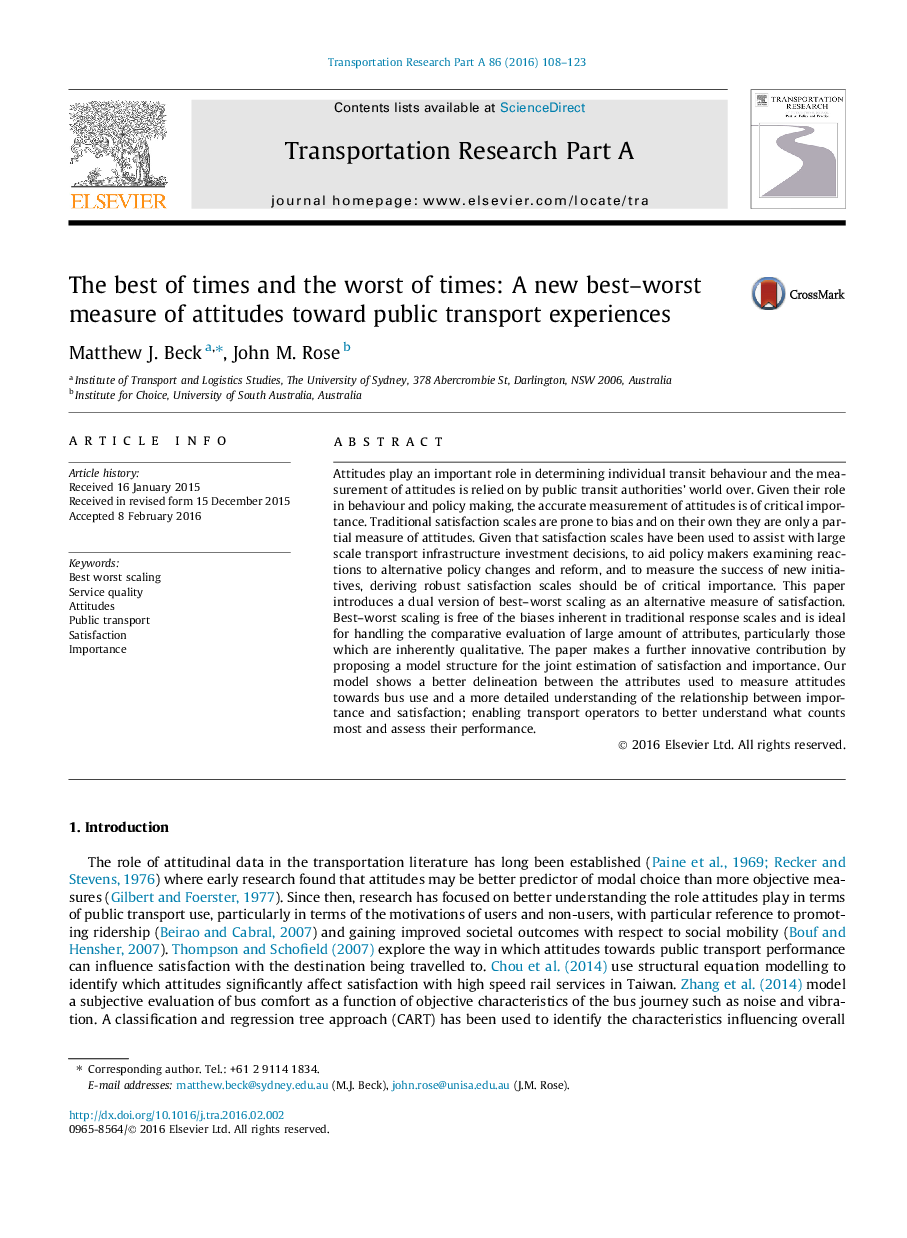| Article ID | Journal | Published Year | Pages | File Type |
|---|---|---|---|---|
| 6780957 | Transportation Research Part A: Policy and Practice | 2016 | 16 Pages |
Abstract
Attitudes play an important role in determining individual transit behaviour and the measurement of attitudes is relied on by public transit authorities' world over. Given their role in behaviour and policy making, the accurate measurement of attitudes is of critical importance. Traditional satisfaction scales are prone to bias and on their own they are only a partial measure of attitudes. Given that satisfaction scales have been used to assist with large scale transport infrastructure investment decisions, to aid policy makers examining reactions to alternative policy changes and reform, and to measure the success of new initiatives, deriving robust satisfaction scales should be of critical importance. This paper introduces a dual version of best-worst scaling as an alternative measure of satisfaction. Best-worst scaling is free of the biases inherent in traditional response scales and is ideal for handling the comparative evaluation of large amount of attributes, particularly those which are inherently qualitative. The paper makes a further innovative contribution by proposing a model structure for the joint estimation of satisfaction and importance. Our model shows a better delineation between the attributes used to measure attitudes towards bus use and a more detailed understanding of the relationship between importance and satisfaction; enabling transport operators to better understand what counts most and assess their performance.
Related Topics
Physical Sciences and Engineering
Engineering
Civil and Structural Engineering
Authors
Matthew J. Beck, John M. Rose,
